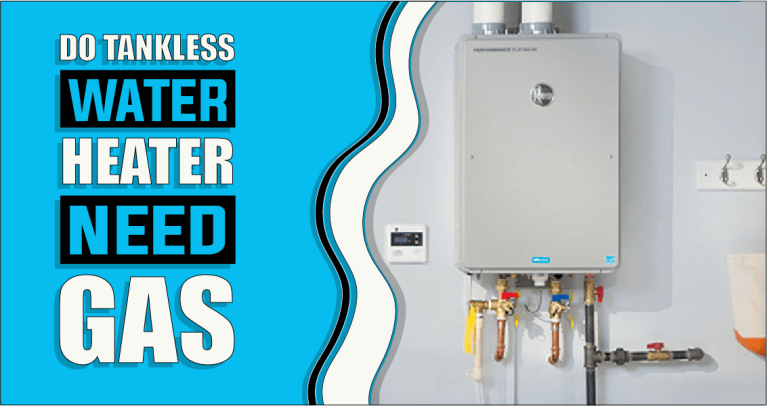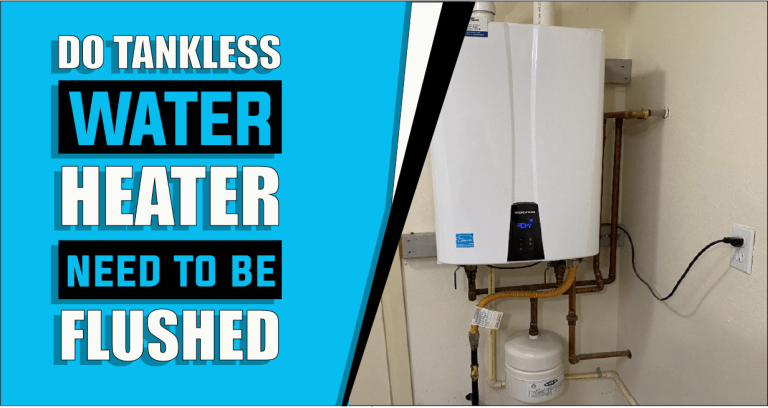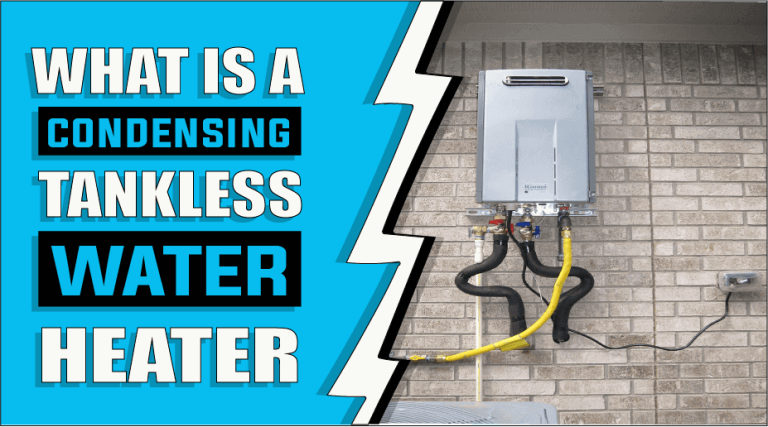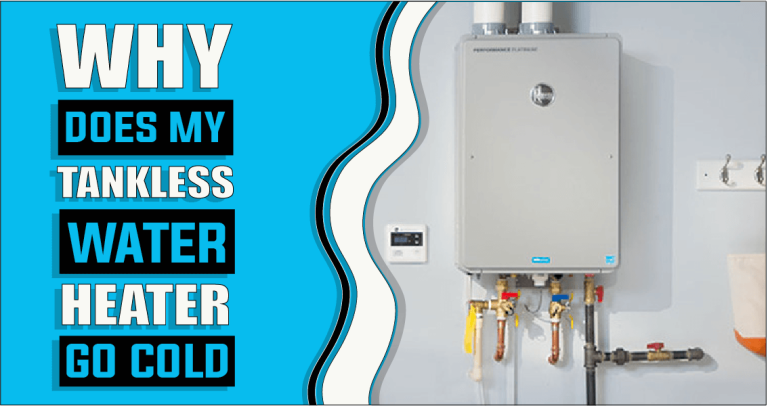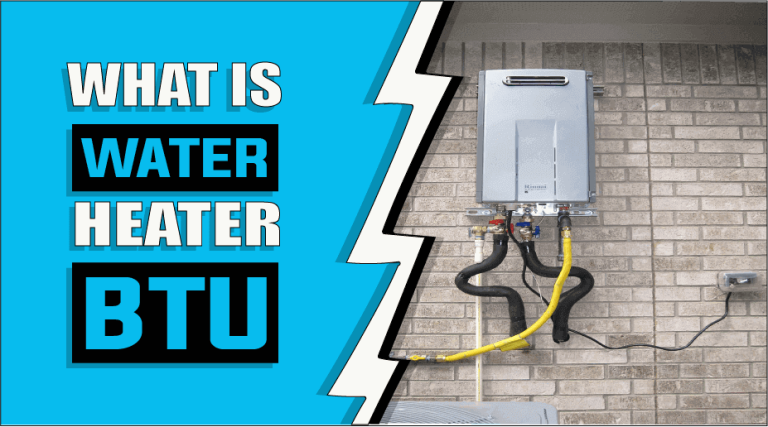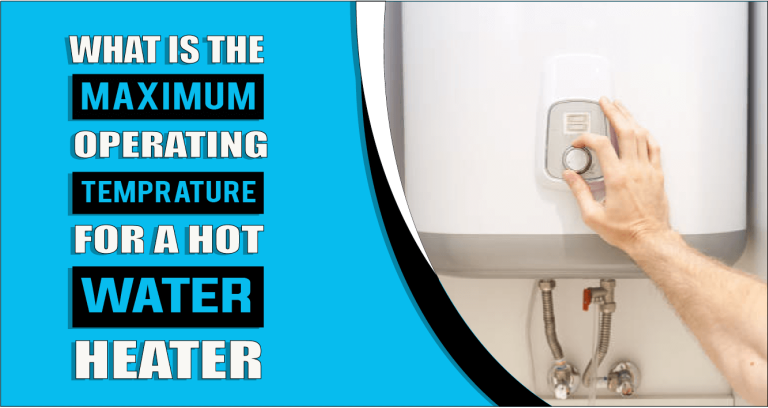Do Tankless Water Heaters Need Electricity – The Truth Reveals
When it comes to heating water for your home, tankless water heaters are quickly becoming a popular choice. But what exactly do these advanced hot water solutions need to work? Do tankless water heaters need electricity, or is there another type of energy involved? If you’re considering installing a tankless heater in your house and want to know how the system works without an electric connection, then this post is for you. Here we explore the ins and outs of different types of energy sources used by these innovative gadgets and what energy sources they utilize. Get yourself ready to choose the best fuel-efficient tankless water heater!
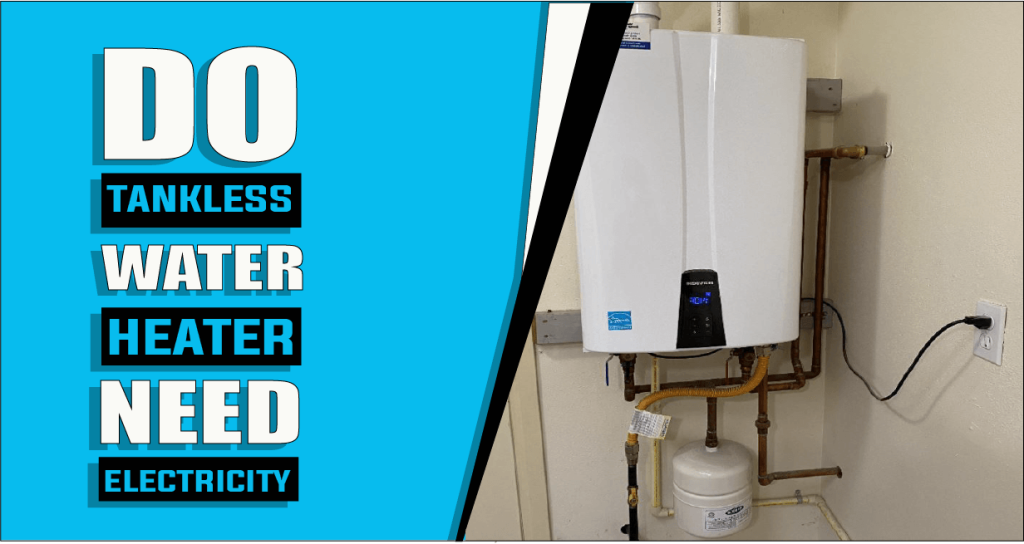
Let’s explore do tankless water heaters need electricity.
Tankless water heaters are an increasingly popular choice to upgrade your home’s hot water system. These systems provide an efficient, cost-effective way of heating water on demand, and come with a host of advantages. The question that arises in people’s heads when looking into tankless water heaters is whether or not they need electricity to operate. Absolutely! yes, they do require electric power to function correctly.
Fortunately, tankless water heaters are still very energy efficient even though their main power source relies on electricity. Tankless water heaters only draw power when hot water is needed and thus save energy by avoiding preheating and reheating constantly in between uses; whereas tank-style water heaters waste energy constantly by keeping a large tank of preheated water ready at all times. Depending on your existing setup and hot water usage, you can expect to save anywhere from 15% – 30% on your annual energy bills just by switching over from a traditional tank heater to a tankless one!
Furthermore, additional advantages also come with tankless electric water heaters, including space-saving features that make them ideal for tight spaces and better safety characteristics. So there’s no risk of scalding due to over-temperature issues because if the temperature exceeds safe levels tankless water heaters will automatically shut off the system due to built-in sensors.
Summarily, tankless water heaters do need electricity to work properly and deliver warm water whenever we need it; they still are incredibly efficient solutions due to their avoidance of preheating water constantly as traditional heaters do. So they are proven as significant energy savings opportunities without compromising on either performance or cozy comforts at home!
How much energy does it take for a tankless water heater to run?
A tankless water heater is an energy-efficient way to heat your home’s water supply. It does not continuously use energy to keep a reserve of hot water at the ready, unlike traditional tank-style heaters. Instead, it only uses energy when there is a demand for hot water from the faucet or showerhead. As such, these types of heaters can save on monthly energy bills while also providing unlimited hot water when needed.
When considering a tankless water heater the key question that arises is how much energy will it require to run. While calculating the energy the size and power output of the unit itself must be considered first. Tankless water heaters are typically rated in kilowatts (kW) or British Thermal Units (BTU). Most units range between 28kW and 199kW with BTU ratings ranging from 19,000 to 199,000. In general, smaller heating units have lower output ratings and require less power than larger units.
1: Dependence of energy used by tankless water heaters
The amount of energy required to run a tankless water heater depends on a variety of factors. These include the size and power output of the heater, and how much hot water is being drawn from it.
2: Size of the Heater
A tankless water heater should be sized appropriately to operate optimally for user needs. A properly sized unit should be capable of supplying 2–3 gallons per minute (GPM) for one running shower plus 1 GPM for each additional fixture in use simultaneously—meaning that if two people are taking showers at once you would need 4 GPM total flow rate capacity.
3: Amount of water drawn from unit
The amount of energy used by a tankless heater will depend largely on how much hot water is being drawn from it at any time. The more inlet temperature rise offered by the unit, the more energy it requires to maintain that temperature over a given period.
4: Power Output of the Heater
Additionally, the power usage of a tankless water heater also depends on its efficiency rating. Efficiency rating or Energy Factor (EF) is a term that measures how well the unit converts electrical energy into hot water while still maintaining an acceptable level of performance; essentially telling us how many BTUs can be delivered per hour per watt consumed. For example, an Energy Factor rating of 0.90 means that 90% of every watt used by the unit during operation or standby mode is converted into usable heat—the remaining 10% being lost as waste heat.
Overall, a modern tankless water heater should consume about 1/4th to 1/3rd less electricity than tank-type heaters; meaning that if you’re switching from an old tank-type heater with an EF rating of 0.60 to a newer energy-efficiency tankless water heater with an EF rating of 0.90 you could see up to 50% reduction in your electricity consumption costs that represents significant savings on your monthly electricity bill! So you can determine your best tankless water heater according to water usage requirements and local climate conditions for better savings and performance.
Types of tankless water heaters that used electricity
The best tankless water heater depends on the electricity that is available in your area. In general, tankless water heaters can be powered by using either electricity or gas. Among all types of tankless water heaters, electric water heaters are more common due to their relatively lower installation costs and energy efficiency. Let’s take a closer observation at different types of tankless water heaters.
1: Natural Gas and Propane Water Heaters
Tankless water heaters are a great appliance to conserve energy and save money on your electricity bills. They are not only more energy-efficient than traditional heaters, but they can also be powered by natural gas or propane.
Benefits and Features of Natural Gas and Propane Water Heaters
Natural gas and propane water heaters provide several benefits over electric water heaters, including:
- Lower Emission Output
- Lower Installation Cost
- Higher Efficiency
- Durable Construction Material
1: Lower Emission Output
The standing benefit of natural gas and propane water heaters is their low emission output. Natural gas and propane models don’t produce greenhouse gases while electric water heaters do.
This feature makes them much more environmentally friendly and helps reduce the amount of carbon in the atmosphere. Moreover, gas and propane-powered water heaters require less maintenance due to the lack of corrosion-causing elements in the fuel source.
2: Lower Installation Cost
Another benefit of natural gas and propane water heaters is their lower installation costs because they don’t require an electrical connection for working. These types of water heaters usually have less upfront cost due to reduced materials costs. Furthermore, these units do not require additional wiring or plumbing modifications during installation due to that labor costs are also significantly reduced when installing these heaters.
3: Higher Efficiency
Natural gas and propane water heaters have been proven to be far more efficient than their electric counterparts. Due to the high BTU content in their fuels, they can target peak efficiency quickly which allows them to provide hot water instantly. This results in faster recovery rates between uses and greater savings on utility bills over time as energy use per gallon are greatly reduced with these heating units.
4: Durable Construction Material
Natural gas and propane tankless water heaters are designed with longevity in mind due to their durable construction materials such as stainless steel or copper piping which help protect against rusting or corrosion that may be caused by contaminants found in some municipal water supplies over time. Furthermore, many manufacturers offer extended warranties on these types of products which offer further peace of mind!
These features make them a great option for those looking for a reliable hot-water solution that has both environmental sustainability as well as long-term cost savings at its core design principles.
2: Electric Tankless Water Heaters
Electric tankless water heaters are best suited for reliable and hot water solutions for those who live in smaller homes or apartments. These energy-efficient heaters are best used in those areas where there is limited availability of natural gas and propane.
Benefits and Features of Electric Tankless Water Heaters
Electric tankless water heaters provide several benefits over traditional electric water heaters, including:
- Energy Efficiency
- Convenience
- Safety
1: Energy Efficiency
Electric tankless water heaters are much more efficient due to their on-demand heating as compared to traditional tank heaters. This super efficiency helps reduce the amount of energy used to produce hot water and can lead to significant savings on utility bills over time.
2: Convenience
Electric tankless water heaters are designed for convenience as they come with multiple installation choices including closets, walls, or even outdoors. Due to their compact size and weight, they’re able to fit into tight spaces where other types of water heaters would not be able to go. Furthermore, electric tankless water heaters provide hot water on demand and don’t require preheating or storage tanks which saves both time and money.
3: Safety
Electric tankless water heaters are constructed with high-pressure relief valves that prevent pressure build-up in the system. Plus, they do not produce any hazardous fumes or combustible particles while natural gas and propane water heaters do. So the electric tankless heating unit combined with superior safety features is the safe choice for your home or apartment.
Installation Requirements for Electric Tankless Water Heaters
If you decide to install an electric tankless water heater, some specific requirements need to be met.
1: Proper Size of the Unit
The first step in the installation process is to determine the proper sizing of the unit. A too-small unit will not be able to keep up with demand, while oversized units will waste energy so you must choose a unit that can provide enough hot water for your needs.
2: Adequate Power Load
Additionally, the electrical load must be taken into consideration while installing an electric tankless water heater. The circuit breaker must be able to handle the load of the new unit as well as any existing appliances or outlets connected to it. A licensed electrician should be consulted to ensure that adequate power is available for the safe operation of the electric tankless water heater.
3: Make the Right Connections according to the Manufacturer’s Instructions
Once your electric tankless water heater has been properly sized and wired, it needs to be installed according to local building codes and manufacturer’s instructions. This typically involves mounting the unit on an interior wall, running cold and hot water lines, and venting piping out through an exterior wall or roof vent. Once these connections have been made, the unit can then be connected via wiring between its circuit breaker and the main power source.
4: Testing all Safety Features
Finally, all safety features such as temperature control valves, pressure relief valves, and flow valves need to be tested before use. These include a dedicated circuit and wiring, as well as appropriate over-current protection devices for safety.
Summarily, it’s always best to consult a qualified electrician or plumbing professional for installing an electric tankless water heater. In this way, you can ensure your unit meets all necessary safety guidelines for proper functioning.
Pros and cons of electric tankless water heaters
Before deciding to install an electric tankless water heater, it’s best to weigh the pros and cons.
Pros:
1: Higher energy efficiency
Electric tankless water heaters are incredibly efficient as they don’t run constantly to heat the water rather water is heated only on demand. This reduces electricity consumption and helps you to reduce the utility bill cost. Overall, they can save up to 50% of energy in comparison to tank-based heaters.
2: Compact size
Electric tankless water heaters are incredibly compact and space-efficient. This is one of the most appealing features for homeowners who want to save on space. Due to their compact and reliable size, these units can be installed almost anywhere in your home. As an added benefit, their compact size allows them to be easily mounted directly onto walls and other flat surfaces, providing even more space savings.
3: On-demand water heating
Electric tankless water heaters are a great way to get hot water on demand without needing to preheat or store it. They only heat the water when it’s needed, meaning that you’re not wasting money on keeping a huge tank of hot water heated all day long. With an electric tankless water heater, the electric power for the unit is used only when cold water enters and needs to be heated. This means that no standby energy is consumed which leads to substantial savings over time.
4: Extended lifespan
Electric tankless water heaters are becoming increasingly popular due to their extended lifespan. Unlike traditional hot water tanks, electric tankless water heaters can last up to 20 years because these units don’t need a storage tank that can corrode over time. Instead, they use electric heating elements to instantly heat the water. As a result, there’s no need for any of the associated maintenance costs such as regular flushing or replenishing it with anti-corrosive agents.
Cons:
1: Need a higher initial investment
An electric tankless water heater is an excellent solution for heating water in chilly winters. However, there is a higher initial investment associated with installing electric tankless heaters due to the complexity of their design. This includes the cost of purchasing and installing the unit, necessary wiring, and additional electrical circuits of tankless models. While these costs may seem steep initially, they can be offset and can save you money in long-term upkeep costs.
2: Requires a dedicated circuit breaker and proper wiring
For best performance, electric tankless water heaters require a dedicated circuit breaker and proper wiring. This means that these units need to be hardwired into your home’s electrical system with an appropriate outlet and sufficient power supply. Additionally, they also need external connections for the exhaust vent pipe, cold water intake line, and condensation drain.
3: Complex installation
Electric tankless water heaters require complex installation to work properly. This includes setting up a dedicated electrical circuit, running the wiring, and installing the appropriately sized vent pipe. Furthermore, it’s best to hire a qualified electrician for proper installation.
At the end of the day, electric tankless water heaters are best suited for those looking for energy efficiency, convenience, and safety in their home. When correctly installed, electric tankless heaters provide a reliable hot water supply while also saving you money in the long run. So, if you’re considering installing an electric tankless water heater in your home, make sure to do the necessary research and find the best electric tankless water heater for your needs. With all the advantages it has to offer, this is a great way to stay warm and save energy!
Frequently Asked Questions
Tankless water heaters are powered by electricity, natural gas, or propane. Electric tankless water heaters are best for those who have access to an electric outlet and require less maintenance than their gas-powered counterparts.
The amount of electricity that a tankless water heater requires can vary greatly depending on the size and design of the unit. Generally speaking, electric tankless water heaters require somewhere between 20-36 kW of power to operate; however, some much smaller units may need as little as 4 kW.
Tankless water heaters come in a variety of types, and many do not rely on electricity to work. These include propane or natural gas-powered tankless water heaters which are fueled by the combustion of these fuels. Additionally, there are also solar-powered tankless water heaters that use the sun’s energy to generate hot water. However, electric tankless water heaters are the most common type since they are often more efficient and require less maintenance than other models.
It depends on the individual’s needs and preferences. Electric tankless water heaters are best for those who have access to an electric outlet, while gas-powered models are best suited for those who don’t have easy access to electricity. Additionally, electric tankless water heaters require less maintenance as compared to natural gas heaters.
Conclusion
So, do tankless water heaters need electricity? The answer is a resounding yes! All tankless water heaters require some level of electricity to operate. However, many different types of tankless water heaters use different types of fuels. By understanding the different types of tankless water heaters and how much energy they use, you can make an informed decision about which one is right for your home as going with a tankless water heater can help you save money on your energy bill even if it requires a little bit of juice to get started up.
Ella John is passionate about helping her readers make the best choice when purchasing a heater. She understands that selecting a heater can be difficult and strives to provide information to help make the decision easier. Ella’s website, Heatersinfo.com, provides valuable insight into heating trends and types of heaters and tips on how to care for them. She also advises selecting the right heater based on individual needs and preferences. Her expertise in electronics makes her an excellent source of knowledge, and she is confident that anyone who visits her website will find the perfect heater information for their needs. Ella’s dedication to helping others make educated decisions about buying the right heater is unparalleled, and she hopes to continue offering her expertise for many years. With Ella’s help, finding the perfect heater can be a breeze!

